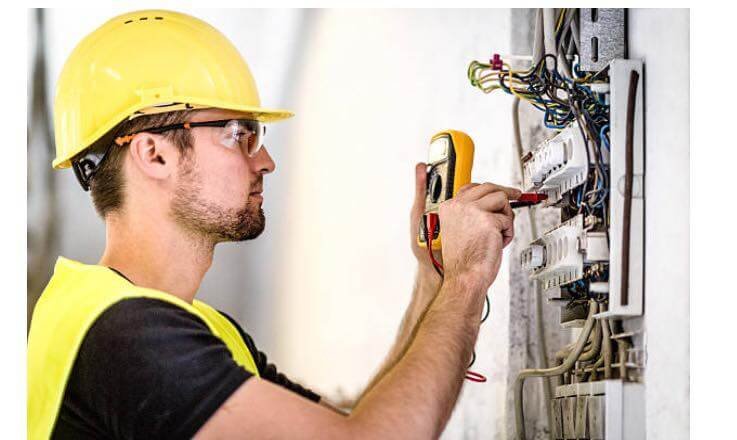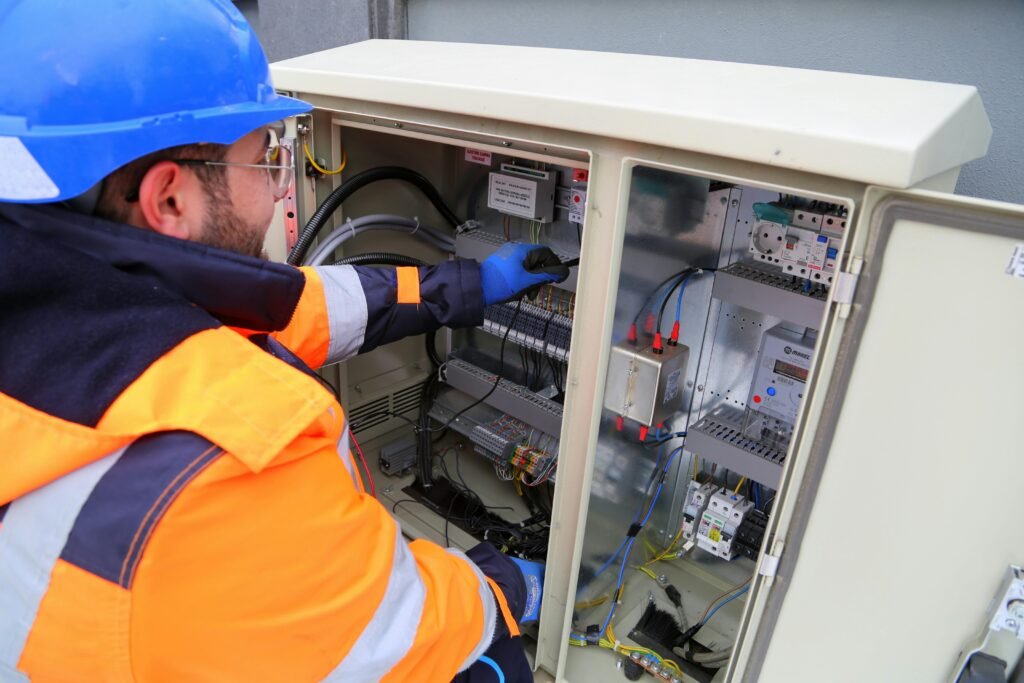Navigating the intricate, yet vital, world of electrical safety and the stark reality of legal penalties may seem like trying to merge two disparate universes. As an experienced electrician, I can’t stress enough the importance of understanding the EICR certificate legal requirement.
Since 2020, having an EICR Certificate has become a legal requirement for landlords in London, with serious consequences for non-compliance. We’re about to dive into the complex regulations surrounding EICR certificates, as well as the critical role of qualified inspectors.
So, why not join in and beef up your knowledge about this vital aspect of electrical safety?
Table of Contents
EICR Certificate Legal Requirement 2025
As we look forward to 2025, it’s essential to understand that the legal requirement for an Electrical Installation Condition Report (EICR) certificate continues to be a critical safety and compliance element for landlords and property owners in the UK.

The EICR is a comprehensive inspection of all electrical installations, wiring, and systems within a property. It’s mandatory to have an EICR conducted at least every five years, or on change of tenancy, whichever comes first. These inspections need to be performed by competent, registered electricians who are well-versed in UK wiring regulations.
The inspection results, along with any recommendations, are documented in the EICR. Landlords are legally obligated to provide tenants with this report within 30 days of the inspection.
Importance of Compliance With EICR
Ensuring EICR compliance in London isn’t just a legal obligation, but a crucial measure in maintaining the safety and wellbeing of tenants. A poorly maintained electrical system can lead to fires, electric shocks, or even fatalities.
Regular EICR checks allow for the identification of potential faults before they become serious hazards. It provides a detailed analysis of your electrical installations, including the safety of the wiring, the condition of the consumer units, and the state of fixtures.
Moreover, complying with EICR can prevent legal action. Non-compliance not only puts lives at risk, but it can also result in hefty fines or imprisonment. Therefore, it’s vital to ensure that your electrical installations meet the EICR standards.
EICR Requirements for Landlords
Landlords in the UK must meet specific EICR requirements to ensure the safety of their tenants and to comply with the EICR certificate legal requirement. As a landlord, you’re legally obliged to ensure all electrical installations in your property are safe when tenants move in and maintained throughout their tenure.
An Electrical Installation Condition Report (EICR), conducted by a qualified electrician, is mandatory every five years. If the EICR identifies any issues, you’re required to resolve them promptly. Non-compliance can result in hefty fines or even imprisonment.
Furthermore, you must provide tenants with a copy of the EICR within 28 days of the inspection. For new tenants, the EICR must be provided before they occupy the premises. This is a serious responsibility that shouldn’t be neglected.
Testing and Inspection Protocols
Building on the obligations of landlords, we now turn our attention to the specific protocols involved in testing and inspecting electrical installations. A thorough inspection requires a methodical approach. Each circuit in isolation must be inspected for signs of wear, damage, or incorrect wiring. Issues with unsatisfactory EICRs, such as defects like corrosion, loose connections, unsatisfactory earthing, or bonding, are also observed.
In tandem with the visual inspection, precise testing protocols are performed. These include insulation resistance, earth fault loop impedance, and functional testing. These tests aim to provide quantitative data about the safety and efficiency of the electrical system. It’s critical to engage a registered electrician, certified by the National Inspection Council for Electrical Installation Contracting (NICEIC), to ensure conformity to the highest standards of safety and regulation compliance.
Timing and Enforcement of EICR
Let’s delve into the specifics of the timing and enforcement of the Electrical Installation Condition Reports (EICR), a crucial aspect of electrical safety compliance in the UK. Since July 2020, landlords must ensure an EICR is conducted every five years. If a tenant requests an EICR, it must be provided within 30 days. Non-compliance can lead to hefty fines or even imprisonment.

But who enforces this? Local authorities have the reins. They can demand remedial work if your EICR identifies a serious issue. If you don’t comply within 28 days, they can arrange the work themselves, recovering costs from you later. Hence, it’s not just about timing; enforcement of EICR is a serious business with legal implications.
Frequently Asked Questions
What Are the Consequences of Failing to Provide an EICR Certificate as a Landlord?
As a landlord, failing to provide an EICR certificate can lead to severe consequences. It can result in hefty fines, potential prison sentences, and voiding of landlord insurance, jeopardizing my legal standing and property business.
How Often Do I Need to Renew the EICR Certificate for My Rental Property?
As a landlord, I’m required to renew the EICR certificate for my rental property every five years. However, it’s advised to perform checks more frequently to ensure ongoing electrical safety and compliance with regulations.
As a Tenant, What Should I Do if My Landlord Fails to Provide an EICR Certificate?
If my landlord doesn’t provide an EICR certificate, I’d first request it formally. If unsuccessful, I’d report them to the local council, as it’s their legal obligation to ensure electrical safety in rented properties.
What Specific Aspects of Electrical Installations Are Inspected for an Eicr?
In an EICR inspection, I’d thoroughly examine the wiring condition, consumer units, and fixtures. I’d identify any safety damage and note any lack of earthing or bonding. The result provides crucial safety insights.
Can a Landlord Conduct the EICR Inspection Themselves or Does It Have to Be Done by a Qualified Professional?
As a landlord, you can’t conduct the EICR inspection myself. It’s required by law that a registered, competent electrician performs this task to ensure the safety standards of the property’s electrical installations are met.
Conclusion
In summary, the EICR isn’t just a legal requirement but a crucial safety measure. It’s indispensable for landlords to understand and comply with these regulations, ensuring electrical installations are inspected by qualified persons.
Non-compliance doesn’t just risk fines or imprisonment, but tenant safety too. So, let’s prioritise safety, avoid legal issues, and promote a safe living environment by understanding and respecting the importance of the EICR.
Stay plugged in for more insights on electrical safety.


